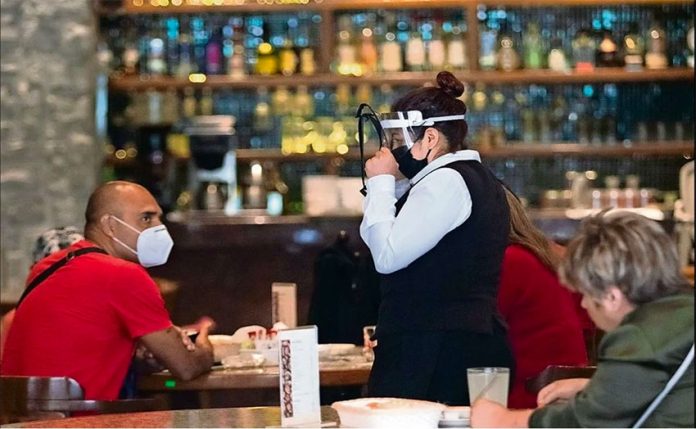After some Mexico City restaurants openly defied anti-Covid regulations this week and began illegally providing in-house dining to customers, the city government and restaurant owners have come to a tentative compromise that will allow restaurants to reopen Monday despite the city’s current shutdown of nonessential economic activities until January 19.
The agreement reached Wednesday is still not official but restaurant owners issued optimistic statements thanking the city, though even that statement was the source of a minor dispute between both sides.
Still, everyone appears to have agreed that under the new, stricter rules, restaurants will be free to serve in-house customers at tables outdoors. Under the current lockdown, they had only been allowed to serve takeout or delivery meals, a situation which owners said was killing their businesses.
Since December 19, the city and México state have been under stricter lockdown orders that suspended all nonessential economic activities. The shutdown was supposed to end Monday, but last Friday both governments announced that the suspension would remain in place for another week as the coronavirus situation continued to worsen.
Several restaurants and restaurant chains in Mexico City refused to follow the order after January 10, and reopened on Monday anyway, including Sonora Grill, Fisher’s, Tok’s and Potzocalli.
Current details of the agreement include:
- Restaurants will close to in-house dining by either 4 p.m. or 6 p.m., after which they will be allowed to serve takeout or delivery meals. Statements by the restaurant owners and the city government about the closing time are contradictory, with owners thanking the city for agreeing to the 6 p.m. time and Mexico City officials telling the newspaper El Universal that it had agreed to 4 p.m.
- Tables must be set up outdoors, either on the sidewalk or on outdoor terraces. Tables must be 1.5 meters apart, with only four people seated per table.
- Restaurants will put their menus online with a QR coding system that diners can access with their cell phones to prevent the spread of the virus via physical menus.
- Restaurants with 50 or more employees will have to test 5% of those employees for Covid once per week.
Regarding the dispute over closing times to in-house dining, restaurant owners told El Universal that the 4 p.m. closing is “unworkable” because Mexican diners typically don’t even eat lunch until 2:30 or 3 p.m.
Restaurant owners also said they agreed to a future scheme should Mexico City return again to the maximum Covid threat level on the coronavirus stoplight map.
According to the scheme, upon the city going red restaurants would reduce customer capacity to no more than 25% capacity indoors and 35% on terraces and in outdoor seating areas, with no more than six people seated at a table and a closing time of no later than 10 p.m. They would also use QR menus and ban live music. Businesses with over 50 employees would test 5% of their employees for Covid weekly
However, upon going back to orange on the stoplight map, owners said, restaurants would be allowed to return to previous Covid regulations: maximum 30% occupancy indoors and 40% outdoors, closing by 11 p.m., six diners per table, and live music allowed, among other rules.
Source: El Universal (sp)
